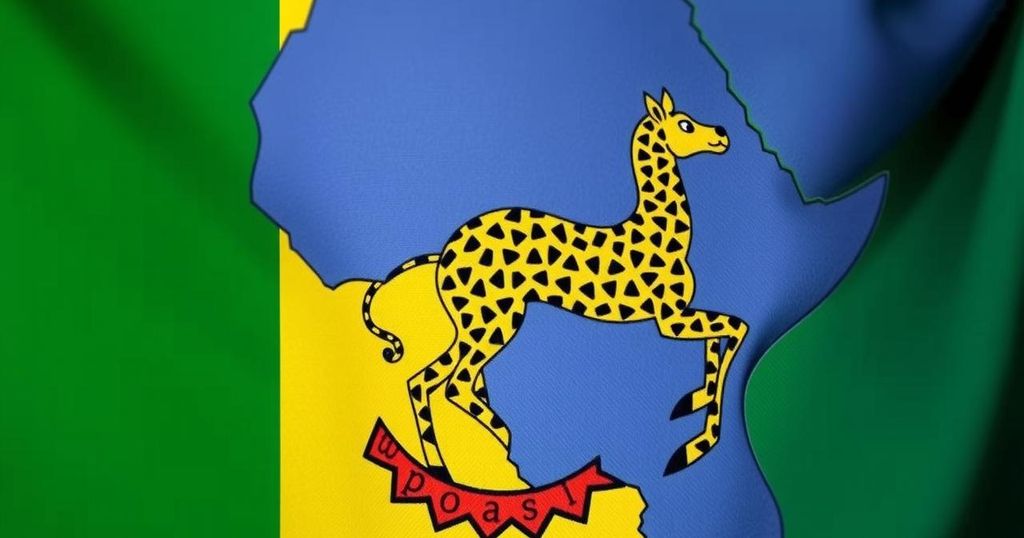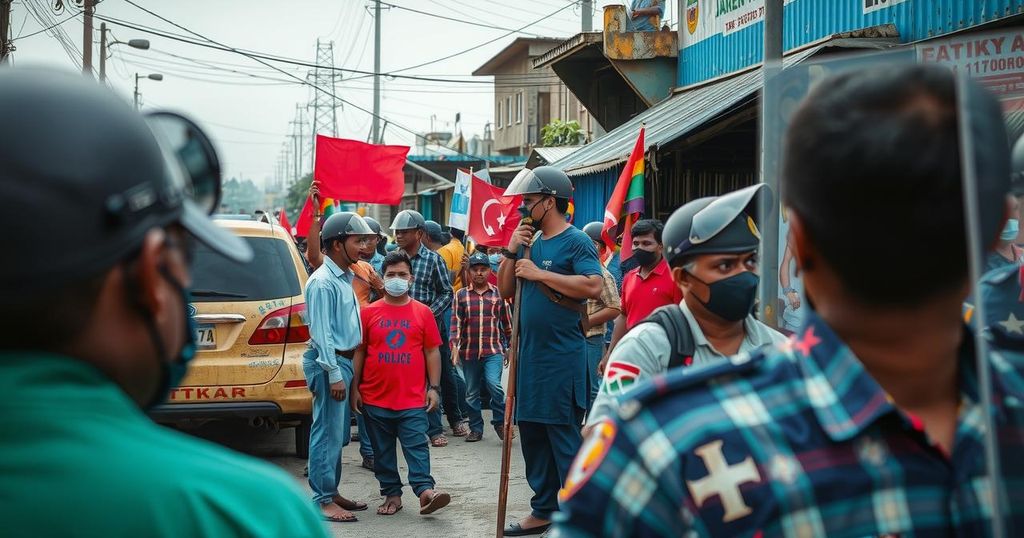Politics
AFRICA, ASIA, ASSOCIATED PRESS, AT, ATTAHER HALIDOU, BAMAKO, BANDIOUGOU DANTÉ, BURKINA FASO, CHINA, CORRUPTION, DEMOCRACY, HUMAN RIGHTS, JOLIBA, JOLIBA TV, JOLIBA TV NEWS, MALI, N ’ DJIM, NATIONAL TRANSITIONAL COUNCIL, PRESS FREEDOM, PRESS HOUSE OF, PRESS HOUSE OF MALI, THE ASSOCIATED PRESS, VIOLENCE
Dante Raeburn
Mali Junta Suspends Joliba TV for Critique of Burkina Faso Military Government
Mali’s military junta ceased the broadcast of Joliba TV News after the channel aired criticism of Burkina Faso’s junta. The move is viewed as part of a larger trend of limiting press freedoms under Mali’s military rule, following interviews criticizing regional leaders. The Press House of Mali is advocating for the restoration of the channel’s signal, highlighting ongoing tensions regarding media freedom.
The Malian junta has suspended the signal of Joliba TV News following a broadcast where a politician criticized the military government of Burkina Faso. Journalist Attaher Halidou reported that the channel’s signal was cut after prominent politician Issa Kaou N’Djim accused Burkinabe military leaders of fabricating evidence of a coup attempt. The act signifies a continued crackdown on press freedom in Mali, which has seen similar restrictions under military rule since 2020. In a broader context, the Press House of Mali has expressed intentions to address the signal cut, indicating ongoing discussions regarding press freedom and the potential revocation of Joliba TV’s license.
Since the establishment of military rule in Mali in 2020, the government has increasingly restricted media outlets and political dissent. The junta’s measures have been met with criticism from various sectors, including opposition politicians and press organizations. The situation is compounded by rising security challenges in the region, exacerbated by extremist violence and government forces’ heavy-handed responses. Joliba TV News, a significant platform for political discourse, now faces potential censorship amid these tensions.
The recent termination of Joliba TV’s broadcast reflects the Malian junta’s continuing efforts to suppress criticism and media plurality. This event underscores the broader implications for political discourse in Mali, especially in light of its fragile security situation. As discussions regarding the restoration of media freedoms continue, the response from press organizations may play a critical role in shaping the future of journalism in the country.
Original Source: abcnews.go.com








Post Comment